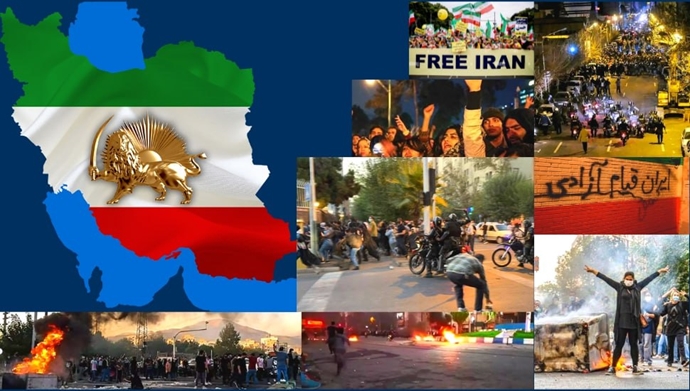On October 27, Iranian regime Supreme Leader Ali Khamenei, said: “Wherever there is no security, there is malice.”
But what does Khamenei mean by “security” and “malice”? The regime’s leaders always remain vague over the definition of fundamental terms that they use regularly.
For example, in the past four decades, Khomeini, Khamenei, or other regime officials have never clearly stated their definitions of “security” and “freedom.” But to get a sense of their meaning, it’s helpful to examine the regime’s rhetoric around “sanctions.”
The regime’s propaganda apparatus and Khamenei himself have repeatedly framed U.S. and European actions as “sanctions against the Iranian people.” But does it make sense for governments to sanction the people of another nation? Throughout the history of international relations, where is such a precedent? The aim and basis of these sanctions are the regime’s nuclear activities—not the Iranian people.
A Closer Look at “Security” and “Malice”
Let us examine where “security” and “malice” align with their true meanings and functions in different domains and where they have been emptied of meaning and used as tools for political interests, power gains, and the pursuit of dominance.
- Security
From Khamenei’s perspective, “security” refers to developments that ensure the status, position, and preservation of the regime.
For the Iranian public, “security” means a condition that ensures jobs, livelihoods, income, and freedom of belief, today and in the future.
To the opposition, “security” means the ability to assemble, freely express beliefs and conduct advocacy, access education and publishing, criticize and hold the regime accountable, with their activities legally and lawfully protected.
For a prisoner, “security” means having an independent attorney, holding their beliefs without torture or exile, maintaining contact with family, being free from coerced confessions or apologies, and being released at the end of their sentence.
For a woman, “security” means legal and lawful guarantees for participation in political, economic, cultural, and professional affairs, as well as independence in choosing her lifestyle, beliefs, and attire.
For a student, “security” means that their parents can afford books, supplies, clothing, food, and other educational and recreational needs, with free education available up to high school.
From a human perspective, “security” involves ensuring that political and economic resources are not concentrated in the hands of the ruling elite but benefit all social and professional groups.
Khamenei’s concept of “security” centers on preserving power and regime dominance. In contrast, “security” for social classes and professions signifies a public necessity to ensure the essential infrastructure for human life and dignity.
- Malice
For Khamenei, “malice” entails refusing to submit to the regime’s beliefs and policies, possessing independent ideas, and pursuing goals contrary to the regime’s. Citizens’ accountability and particularly independent organizations’ scrutiny of the regime’s absolute control are, from his view, “malice.”
From the people’s perspective, “malice” describes an imposed situation where their livelihoods and natural living conditions are constantly endangered by politics and economics, with their beliefs and freedoms perpetually under threat and repression.
From the perspective of an opposition member, “malice” is when the authorities deny them the legal right to freedom of thought, activity, and dissent, while constantly facing the threat of repression, imprisonment, and even death.
From the perspective of a prisoner, “malice” is when they are deprived of the right to independent legal representation, the freedom to believe in their chosen ideals, and have no recourse to justice against torture, exile, and coerced confessions under threat.
From a woman’s perspective, “malice” is when her human identity, personal independence, and right to choose freely are constantly suppressed by the rulers and their ideology, while her political, economic, and social rights are infringed upon under religious and ideological justifications.
From a student’s perspective, “malice” is when their parents feel ashamed for not being able to afford their education, forcing them to drop out of school, work as a child laborer, or scavenge to survive, all while being haunted by exploitation, abuse, and a lack of prospects.
From a human perspective, “malice” is when elite classes in political and religious spheres wield their power, wealth, and ability to impose political and military obligations to enforce their will upon citizens, creating systemic oppression, depravity, and misery in society.
Conclusion
The dire situation of people’s lives and livelihoods; exiled, imprisoned, and executed opposition; women facing religious harassment and institutional gender discrimination; students forced to drop out, child laborers, and street children; and the deliberate imposition of class disparity, unemployment, inflation, and widespread psychological distress—all are manifestations of regime “malice” aimed at ensuring “security” for the regime’s survival.
The truth is that most Iranians are struggling against the regime to secure comprehensive “security” and to rid themselves of the entrenched “malice” embedded in the regime’s beliefs, ideology, and structure. They have also come to realize that their desired outcome can only be achieved through the overthrow of the source of this “malice.”



